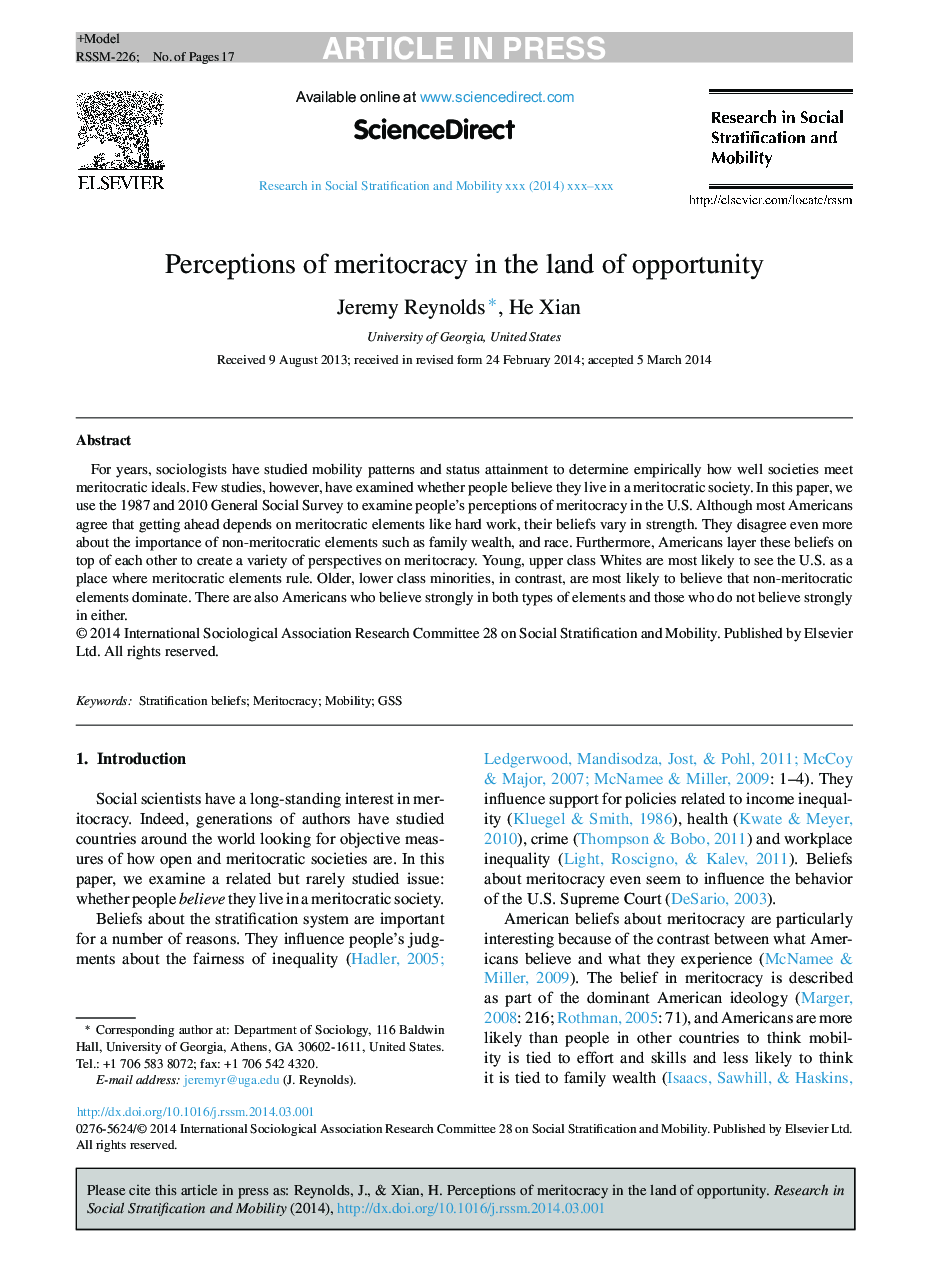| Article ID | Journal | Published Year | Pages | File Type |
|---|---|---|---|---|
| 7410114 | Research in Social Stratification and Mobility | 2014 | 17 Pages |
Abstract
For years, sociologists have studied mobility patterns and status attainment to determine empirically how well societies meet meritocratic ideals. Few studies, however, have examined whether people believe they live in a meritocratic society. In this paper, we use the 1987 and 2010 General Social Survey to examine people's perceptions of meritocracy in the U.S. Although most Americans agree that getting ahead depends on meritocratic elements like hard work, their beliefs vary in strength. They disagree even more about the importance of non-meritocratic elements such as family wealth, and race. Furthermore, Americans layer these beliefs on top of each other to create a variety of perspectives on meritocracy. Young, upper class Whites are most likely to see the U.S. as a place where meritocratic elements rule. Older, lower class minorities, in contrast, are most likely to believe that non-meritocratic elements dominate. There are also Americans who believe strongly in both types of elements and those who do not believe strongly in either.
Keywords
Related Topics
Social Sciences and Humanities
Economics, Econometrics and Finance
Economics, Econometrics and Finance (General)
Authors
Jeremy Reynolds, He Xian,
